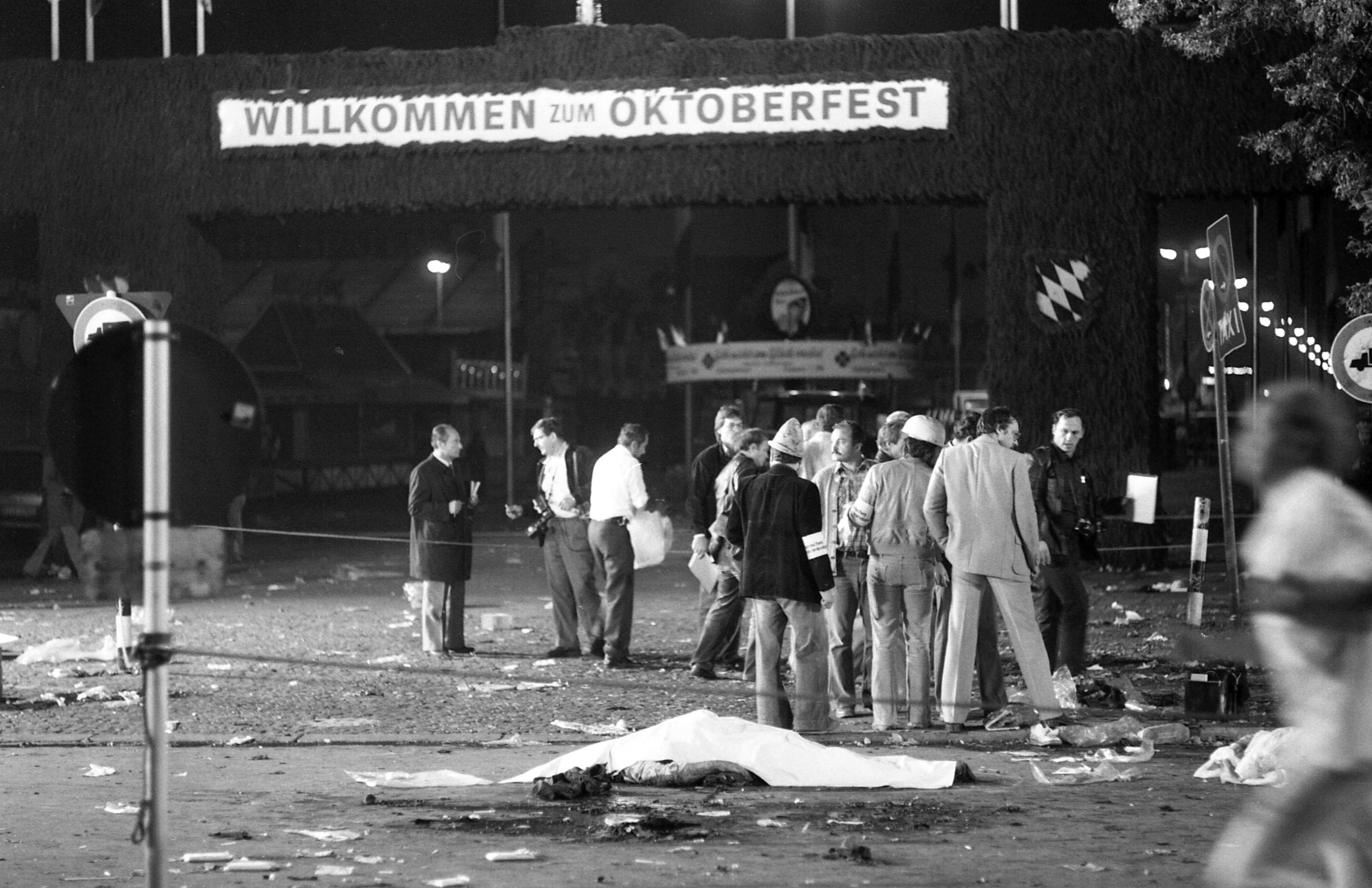
FILE – In this Spt. 26, 1980 file photo, with welcoming gate of the main entrance in rear a victim lies in front of a rescue team on the scene of a bombing blast at Munich’s “Oktoberfest” beer festival in Munich, Germany. German prosecutors said Wednesday that they have closed their investigation into a deadly far-right attack with thirteen people killed and more than 200 wounded on Munich’s Oktoberfest in 1980, more than five years after they revived the probe in hopes that new testimony might point to previously unknown co-conspirators. The dead included the attacker, student Gundolf Koehler, a supporter of a banned far-right group. (AP Photo/Dieter Endlicher, FILE)
BERLIN — German prosecutors said Wednesday that they have closed their investigation into a deadly far-right attack on Munich’s Oktoberfest in 1980, more than five years after they revived the probe in hopes that new testimony might point to previously unknown co-conspirators.
Thirteen people were killed, including three children, and more than 200 wounded when a bomb exploded at the Oktoberfest on the evening of Sept. 26, 1980. The dead included the attacker, student Gundolf Koehler, a supporter of a banned far-right group.
The investigation was closed in 1982. But in December 2014, the federal prosecutor’s office said it was looking at the matter again after a previously unknown witness surfaced.
On Wednesday, federal prosecutors said the witness’ indications that there may have been co-conspirators hadn’t been corroborated by the renewed investigation. They said they had failed to find any other solid evidence that others may have participated as accessories, instigators, or accomplices in Koehler’s attack, though that possibility can’t entirely be ruled out.
The investigation also didn’t support the idea that members of any far-right groups were involved in any criminally relevant way in the attack, prosecutors said, but there is no question mark over Koehler’s own far-right motivation.